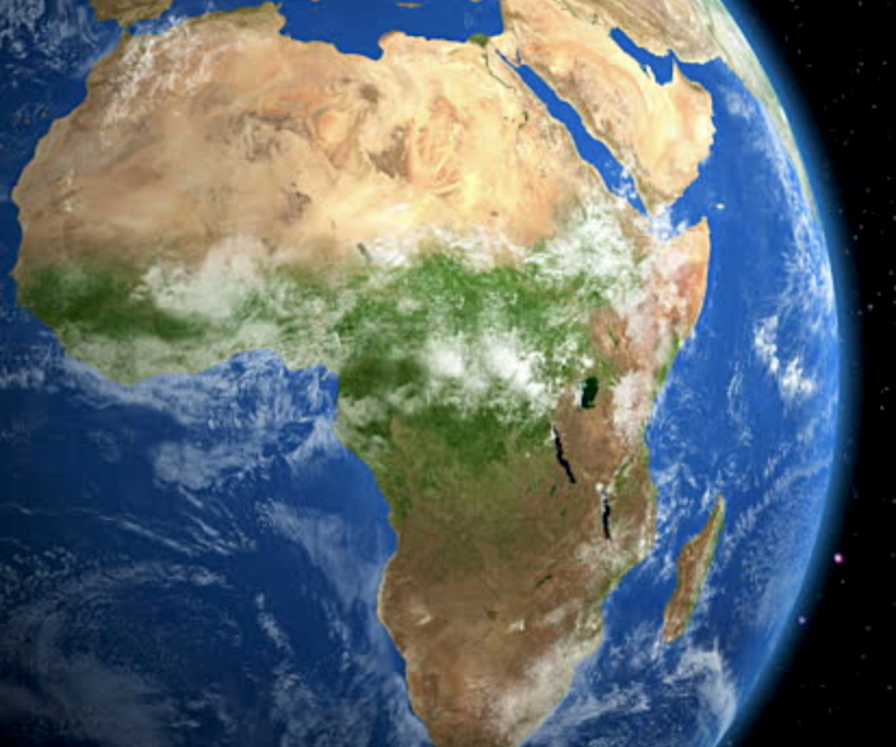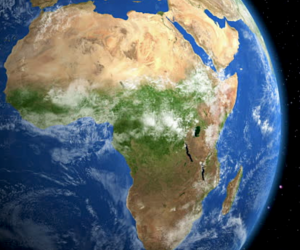Africa, no doubt, has one of the finest demographies in the world today, with millions of young and working age people, which must be exploited via deliberate policies, cooperation and planning. We will have to move away from a resource driven economy, where prizes are determined by the international market, towards value creation, aided by huge investments in human capital development and a strong trade policy.
I never knew this day would come – when an American president would signal, before the whole world, standing on the platform of an institution they built, the end of globalisation. “We reject the ideology of globalism and accept the doctrine of patriotism”, Mr. Trump said, at the recent U.N. General Assembly, while addressing world leaders. Sad as it may seem, this idea has been long coming. President Trump, as with other right wing populists in Europe, have in recent times been fiddling with protectionist ideas, and in the case of America, a retreat from global affairs. This explains why immigration has become a ‘hot button’ in the West, costing several politicians their careers. It goes without saying, that globalisation has become the punching bag for politicians who have been unable to raise living wages or create new jobs and for those seeking to ride on the fears of people to power. “Those immigrants are the ones taking your jobs” – they yell at campaign rallies. The Brexiters blamed the problem of Britain on the European Union, and so did Marine La Pen, the right wing French politician, in his country.
Of course, the relocation of factories in the West to countries like China, Indonesia and India have had serious impact on local economies in the West. Light manufacturing jobs have undoubtedly been lost to China in their thousands and hence the growing resentment towards globalisation. In America, as in the West, the unemployment crisis is real, making easy recruits for the ‘globalization must end’ campaigners. But should the leader of the free world, on account of these hitches, step away from a global order that has made the world a lot more prosperous and stable? Think of it, in 1979 only about 31 countries were growing at 3 per cent or more per year but by 2007, about 124 countries were growing at that pace. In that same period, the quality of life improved, absolute poverty fell and the level of inequality declined.
By all accounts, though not without flaws, the 1944 Bretton Woods conference that established a global system of financial and monetary management, to encourage multilateral trade and economic cooperation, has lived up to its mandate. There is however no doubt that this global system has left several thousand, if not millions behind, and has hence been due for reforms. The world needs America but America also needs the rest of the world. And so Western leaders, led by the Americans, must find the courage and the vision to rejig the global system and make it work for all.
Talks are however going on among member states to raise the percentage of trade within Africa via the African Continental Free Trade Agreement… I firmly believe that such an agreement is in the long term strategic interest of African countries, because it could see intra-African trade move from about 18 per cent to 55 per cent by 2022, with an estimated combined GDP of $29 trillion by 2050.
While Mr. Trump re-echoed his anti-globalism rhetoric, I couldn’t help but ponder on the consequences of a de-globalised world for Africa and particularly Nigeria. The remarkable growth Africa has enjoyed in recent times has been largely tied to a global system that distributes wealth (albeit unequally) and encourages trade (even though deeply flawed). Truth be told, the greatest threat to African development will not just be the surge in technological advancement that could potentially eliminate low skill jobs in favour of machines, but also the rise of nationalism in the West. When Europe shuts it boarders (this is no longer a matter of ‘if’), Africa will be left with a huge population that it can neither feed nor create meaningful employment for, in what can be described as a text book recipe for unavoidable chaos. To avert this crisis, Africa, led by Nigeria, must negotiate its own continental trading and economic system, within the continent, which will encourage more trade among member states, but more importantly, in order to forge a unifying front in major negotiations with Europe and Asia.
As at today, Africa’s intra-regional trade makes up only some 18 per cent of all exports, which when compared to Asia (59 per cent) and Europe (69 per cent), is abysmally low. Talks are however going on among member states to raise the percentage of trade within Africa via the African Continental Free Trade Agreement (a single continental market for goods and services, with the free movement of business persons and investments). Even though major countries, like Nigeria, have hesitated in joining the caravan, in a bid to protect local production, I firmly believe that such an agreement is in the long term strategic interest of African countries, because it could see intra-African trade move from about 18 per cent to 55 per cent by 2022, with an estimated combined GDP of $29 trillion by 2050.
More importantly, there is the need to negotiate as a bloc to avoid getting beaten down by larger economies with smarter bureaucrats. Instructively, Africa’s combined GDP, which is about $1.5 trillion is less than that of Germany, a single country in Europe. How then would you expect a country like Zambia, Eritrea or Djibouti to extract a fair deal from such large economies? Currently, the United States has turned up the heat on Rwanda for raising tariffs on imported used cloths from America (something the American trade department says could cost their economy 40,000 jobs), in a move to protect local production and encourage industrialisation. President Trump is now taking a pound of flesh back by denying the Rwandans certain export privileges via the African Growth and Opportunity Act (AGOA) deal. What is quite intriguing here is that East African countries like Kenya and Tanzania have, in the recent past, made such bold moves to restrict importation and boost the local production of clothes but had to buckle under the pressure of the Americans, because their economies could not survive the backlash. Imagine the African continent as a block negotiating a tariff increase on used clothes and sharing the risks? Much more progress will be achieved in that regard. Africa, no doubt, has one of the finest demographies in the world today, with millions of young and working age people, which must be exploited via deliberate policies, cooperation and planning. We will have to move away from a resource driven economy, where prizes are determined by the international market, towards value creation, aided by huge investments in human capital development and a strong trade policy.
Except we show leadership, and now, Africa might end up a carcass for the world to feed on.



